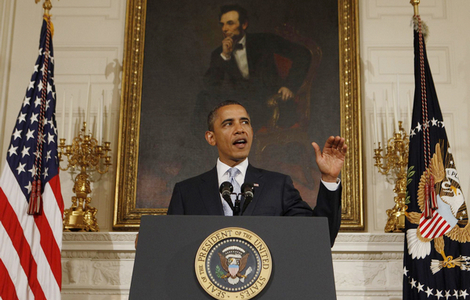Spermless mosquitoes could help halt malaria spread
Updated: 2011-08-09 13:32
(Agencies)
|
|||||||||||
LONDON - Releasing genetically modified, spermless male mosquitoes into the wild could in future help to prevent malaria transmission and reduce the chances of large outbreaks of the killer disease, British scientists said on Monday.
Researchers from Imperial College London sterilised male mosquitoes by genetically modifying them to neutralise a gene required for sperm production. ?
In a study to see how these mosquitoes would fare when trying to get a mate, they found that female mosquitoes cannot tell if the males they mate with are fertile, or spermless and therefore unable to fertilise the females' eggs. ?
The researchers said findings suggest that in future it might be possible to control the size of the malaria-carrying mosquito population by introducing a genetic change that makes males sterile. Female mosquitoes would then unknowingly mate with the modified males and fail to produce any offspring. ?
Malaria is a mosquito-borne disease that affects up to 300 million people and kills nearly 800,000 every year. Its threat is greatest in Africa, where the World Health Organisation says a child dies of malaria about every 45 seconds.
Public health experts are working towards the eventual global eradication of malaria, but progress is slow and there is a constant need for better and cheaper ways to get there. ? ? ?
"In the fight against malaria, many hope that the ability to genetically control the mosquito vector will one day be a key part of our armoury," said Flaminia Catteruccia from Imperial's life sciences department, who led the study.
But she added that for these currently theoretical control ideas to work in practice, scientists have to establish whether the insects would continue to mate as normal, unaware that their sexual mechanisms had been tampered with.
After mating for the first and only time in her life, the female mosquito goes through certain physiological changes, then eats a meal of blood, and lays a batch of eggs. ?
In this research, Catteruccia's team found that this behaviour pattern was the same whether or not the mating had produced fertilised eggs that could hatch into mosquito larvae.
Using Anopheles gambiae mosquitoes -- the species primarily responsible for malaria spread in Africa -- the team created spermless males by injecting ordinary mosquito eggs with a protein that disrupts the development of their testes and prevents them from producing sperm as adults. ?
Crucially, this did not interfere with any other sexual function or behaviour in either the female or the male, they explained in their study, published in the journal Proceedings of the National Academy of Sciences.
The scientists said they were also encouraged to find that after mating with a spermless male, the female made no attempt to find another mate -- and so effectively missed out on the opportunity to reproduce and pass on her genes.
This was contrary to what they had expected based on studies of other species such as fruit flies, where females tend to mate with more than one male to ensure their eggs are fertilised.
Another group of British scientists said last year they had created genetically sterile Aedes aegypti mosquitoes which early field trials suggested could be used to halt the rapid spread of another infectious disease, dengue fever. ?
Hot Topics
The European Central Bank (ECB) held a conference call late on Sunday ahead of the market opening, pledging the ECB will step in to buy eurozone bonds with efforts to forestall the euro zone's debt crisis from spreading.
Editor's Picks

|

|

|

|

|

|







